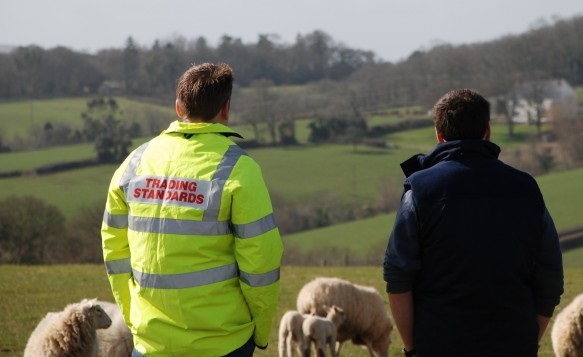Man given livestock ban and ordered to pay out £6,500

A man who kept sheep in 'appalling conditions' has been banned from keeping livestock for five years and ordered to pay out over £6,500.
Officers from Worcestershire County Council visited land off Withybed Lane, Inkberrow, where they saw 'shocking' cases of animal welfare.
Alongside vets from the Animal Plant Health Agency, they discovered maggot infestations so bad that sheep skin was effectively decaying, rendering them unable to get up.
Further inspection of the land around the flock revealed several carcasses in various states of decay, as well as a bonfire where there had been attempts to illegally dispose of some sheep carcasses in the same field.
Nathan Hollis pleaded guilty to four offences at Worcester Magistrates Court, including causing unnecessary suffering to three sheep under the Animal Welfare Act 2006 and a number under the Animal By-Product Regulations 2013.
These include failing to prevent other animals having access to carcasses, failing to dispose of carcasses without undue delay and failing to dispose of sheep carcasses in a manner prescribed in law.
Mr Hollis was a director of TTL Agri Ltd, the company registered as the keeper of sheep at this location.
Magistrates handed down a 12-month community order with 270 hours of unpaid work and ordered him to pay nearly £6,500 in costs and a £114 victim surcharge.
He also received a banning order preventing him from any involvement with livestock for five years.
Simon Wilkes, head of Worcestershire Regulatory Services, said it was a shocking case of causing animal suffering.
He added: "The keeping of livestock requires a significant commitment of time and there is a lot that needs to be understood to do this safely and successfully.
"Keepers have a duty of care to treat animals adequately; where animals die, they must deal with the situation correctly and in a timely manner to minimise the risk of the spread of diseases.
“Following best practices doesn’t just prevent disease from spreading within one farm, they also prevent it from spreading to other farms and helps to protect the food chain."








